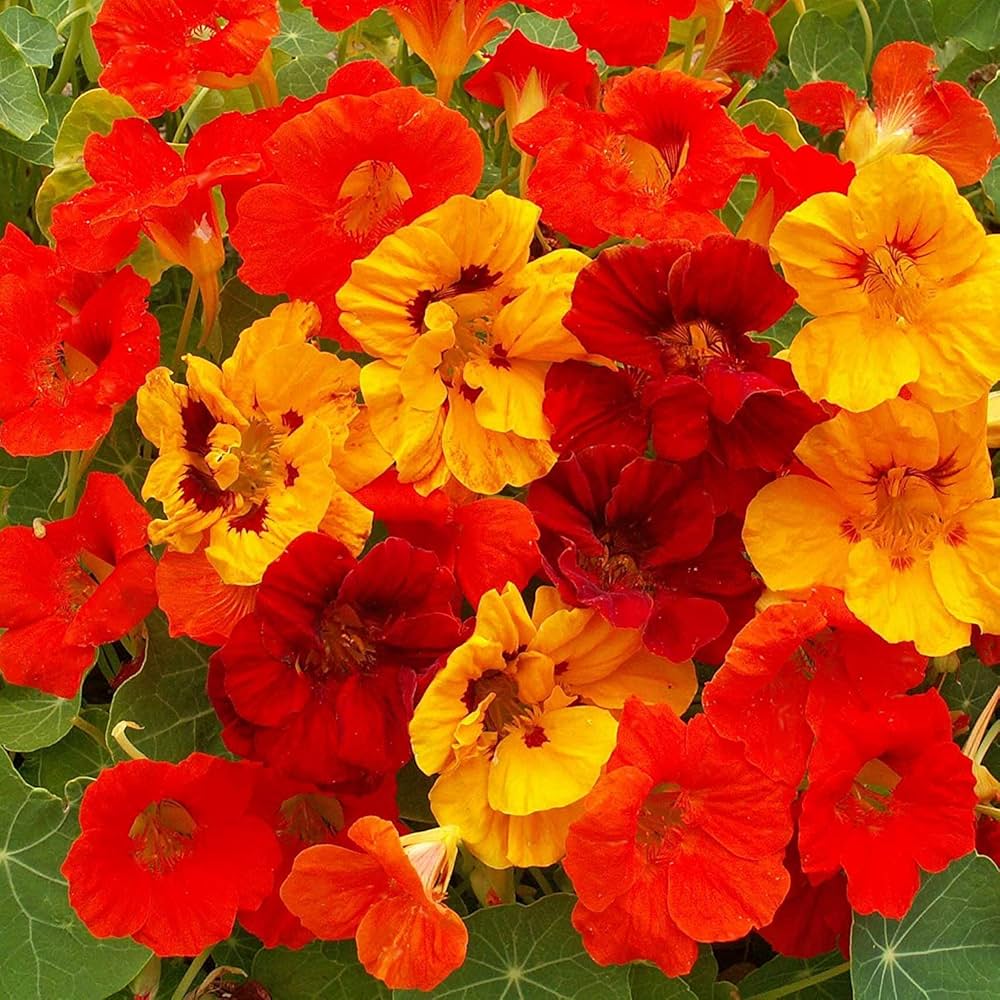Phoenix Nasturtium Bonsai Flower Seeds Tropaeolum majus for Decorative Home Gardens
Couldn't load pickup availability
Description
Jinlian Nasturtium 'Phoenix' Bonsai Flower Seeds
Characteristics and Uses of Jinlian Nasturtium 'Phoenix' Plants
Jinlian Nasturtium 'Phoenix' is a captivating variety known for its vibrant, multi-colored flowers and unique foliage. These flower seeds yield plants that are perfect for bonsai cultivation, showcasing a stunning array of colors that can brighten any garden or indoor space. The 'Phoenix' variety is particularly valued for its ability to produce an abundance of blooms throughout the growing season, making it a favorite among gardeners and bonsai enthusiasts alike. In addition to their ornamental appeal, the flowers and leaves of the nasturtium are edible, adding a peppery flavor to salads and dishes.
Growing Conditions for Jinlian Nasturtium 'Phoenix' Plants
- Light Requirements: Prefers full sun, requiring at least 6-8 hours of direct sunlight daily.
- Soil Type: Well-draining, fertile soil with a pH of 6.0 to 7.0.
- Temperature: Thrives in warm temperatures, ideally between 65°F to 75°F.
- Humidity: Prefers moderate humidity levels, making it suitable for various climates.
Planting Tips for Jinlian Nasturtium 'Phoenix'
- Seed Preparation: Soak seeds in water for 12-2hours before planting to enhance germination.
- Planting Depth: Sow seeds about 1/2 inch deep in well-draining soil.
- Spacing: Space plants 10-12 inches apart to allow for proper growth and airflow.
Watering Instructions and Tips
- Watering Frequency: Water regularly, keeping the soil consistently moist but not waterlogged.
- Water Quality: Use room temperature, non-chlorinated water for optimal growth.
- Signs of Overwatering: Yellowing leaves and wilting can indicate excessive moisture.
Growing Zones
Jinlian Nasturtium 'Phoenix' plants are suitable for USDA zones 3-and can thrive in global zones that offer warm, temperate climates. Their adaptability makes them a great choice for various gardening environments, including bonsai collections and ornamental gardens.
Key Benefits & Uses
- Health Benefits: Nasturtiums are rich in vitamins A and C, and their edible flowers can provide nutritional benefits.
- Culinary Uses: The flowers and leaves can be used in salads, garnishes, and as a flavorful addition to various dishes.
- Aesthetic Appeal: Their vibrant colors and unique foliage add beauty and interest to any garden or patio.
Best Uses in the Garden & Landscape
- Ornamental Planting: Ideal for creating stunning focal points in flower beds and borders.
- Bonsai Cultivation: Perfect for bonsai enthusiasts looking to create unique and beautiful miniature trees.
- Container Gardening: Suitable for patios and balconies, allowing for easy access to beautiful blooms.
Conclusion
In conclusion, Jinlian Nasturtium 'Phoenix' seeds from bijaseeds offer an exciting opportunity for gardeners to cultivate a beautiful and versatile plant that enhances any garden. With its vibrant blooms and edible foliage, this variety is a fantastic choice for both novice and experienced gardeners. bijaseeds is a big, trusted name in the seed world, offering a wide range of high-quality, non-GMO varieties to gardeners everywhere.
FAQ
How do I grow Jinlian Nasturtium 'Phoenix' seeds?
To grow Jinlian Nasturtium 'Phoenix' seeds, soak them in water for 12-2hours before planting. Sow seeds about 1/2 inch deep in well-draining soil and provide plenty of sunlight and consistent moisture for optimal growth.
When is the best time to plant Jinlian Nasturtium 'Phoenix' seeds?
The best time to plant Jinlian Nasturtium 'Phoenix' seeds is in early spring after the last frost, allowing them to establish roots during the warm growing season.
Are Jinlian Nasturtium 'Phoenix' plants difficult to grow?
Jinlian Nasturtium 'Phoenix' plants are generally easy to grow, making them suitable for gardeners of all levels. With proper care, including adequate sunlight, watering, and soil conditions, they can thrive and provide beautiful foliage and flowers.



